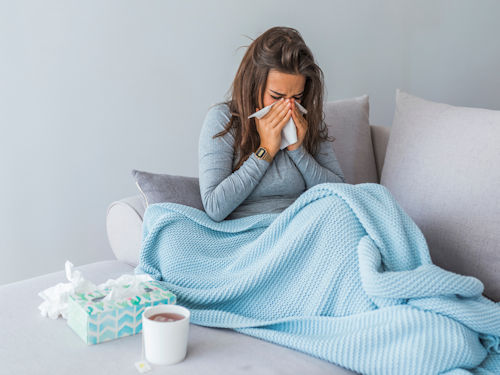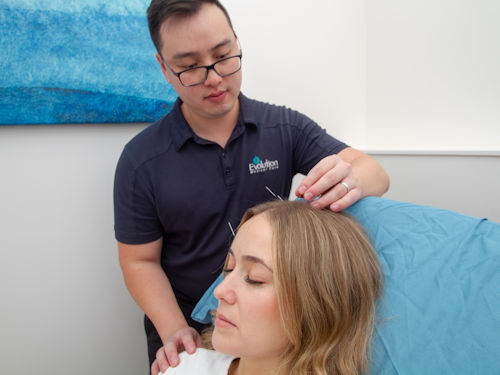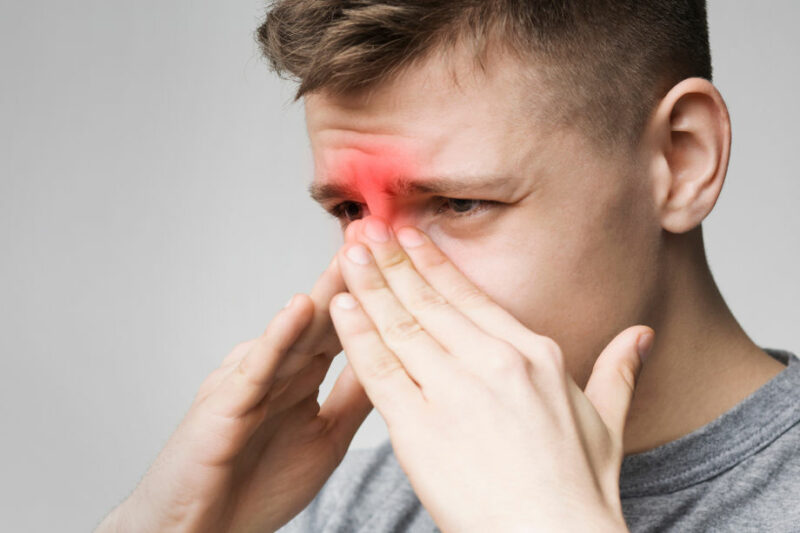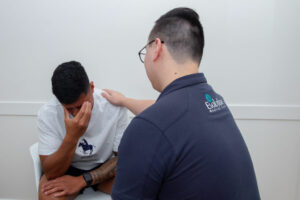What Are Sinuses?
Sinuses are small, air-filled cavities behind our cheekbones and forehead. Sinuses are a system of connected spaces in the skull that link to the nasal passages by narrow passages. Sinuses help humidify the air we breathe and enhance our voices.
What Is The Purpose of Sinuses?
The primary function of sinuses is to produce mucus (coat) that moisturises the inside of the nose. This mucus layer protects the nasal passages from pollutants, micro-organisms, dust, and dirt. Tiny hair cells called cilia move the layer of mucus slowly back into the throat, where it is swallowed.
What Is Sinusitis
When one or more of your sinuses or air cavities become inflamed, we call this ‘sinusitis’. Sinusitis is an inflammation or swelling of the tissue lining the sinuses. A sinus infection can either be viral or bacterial. Healthy sinuses are filled with air, but when they become blocked or filled with fluid and germs, they can grow and cause an infection. This inflammation causes an increase in internal pressure, and often affects the cheek area, eyes, nose and the top of the head, which can result in a severe headache.
Sinusitis is a common symptom that can occur after a cold or flu. The body will normally resolve the cause of inflammation within two and a half weeks without the need for medication. A doctor may prescribe medicine such as regular pain relief or in severe cases, an antibiotic.
What Are The Different Types Of Sinusitis?
There are four different types of sinusitis. It is important to understand what type of sinusitis you have so you can appropriately resolve the issue. The four types include;
Acute Sinusitis
A short-term inflammation of the tissue that lines your nose. This interferes with the ability to drain mucus from the nose and sinuses, which then causes mucus to build us. The symptoms usually start as a normal cold, such as a runny nose and facial pain. It can last 2 to 4 weeks. The body naturally heals acute sinusitis, so it is important to rest as this will help your body fight the infection and speed up the recovery time.
Subacute Sinusitis
The symptoms are the same as acute sinusitis, although this type of sinusitis will not reduce with treatment initially, and the inflammation usually lasts anywhere between 4 to 12 weeks.
Chronic Sinusitis
Chronic sinusitis is when the sinuses which are inside your nose and head are swollen and inflamed for three months or longer, regardless of treatment. Chronic sinusitis can be brought on by either an infection in the body, growth in the sinuses or by swelling of the lining of sinuses. It could also be caused by allergies or physical factors such as deviated septum (bone and cartilage that separate the nasal cavity of the nose is off centre or crooked)
Recurrent Sinusitis
This is when an individual suffers from acute sinusitis several times a year. If this is the case for you, seek a healthcare professional’s advice to help assist and prevent.
Common Symptoms Of Sinusitis:
- Either a green or yellow discharge from your nose
- Blocked nose causing difficulty to breathe
- Pain, tenderness or irritation around your cheeks, eyes or forehead
- Headaches
- High temperature, 38oC or more
- Unable to smell
- Cough or sore throat
Is Sinusitis Something I Should Be Worried About?
Most cases of sinusitis get better on their own and self-care techniques are usually all you need to ease symptoms. Sinusitis can be very uncomfortable and irritable and will maintain until it starts to clear up. Sinusitis isn’t a major concern or something individuals should stress about, but in some cases, such as chronic sinusitis, it can be an underlying issue to something else, such as an allergy you have but were unaware of or a deviated septum. A doctor can help assist and identify the main cause of sinusitis. See a doctor if sinus pain or pressure lasts longer than three weeks.
Although sinusitis resolves as a result of the body’s immune response, in some cases this doesn’t occur and the infection lingers on. Doctors recommend seeking advice after seven to ten days of ongoing sinusitis symptoms that are getting worse rather than better. Viral infections, such like the common cold usually heals itself, but some sinusitis can occur due to a bacterial infection in the body. If you are not getting better, that’s when doctors realise there is a bacterial component and will prescribe antibiotics.
If sinusitis from a bacterial infection origin isn’t resolved, other health problems may arise such as inner ear infection, vertigo, dental issues and possibility chronic sinusitis.

Conditions That Can Cause Sinusitis May Include:
- Common colds
- Respiratory tract infections
- Allergies
- Hay fever
- Deviated nasal septum – one nasal passage is smaller than the other
- Blockages
- Change of season/weather
- Rhinitis – irritation and inflammation of the mucous membranes inside the nose. Rhinitis commonly occurs at the same time as sinusitis.
How Can I Prevent And Treat Sinusitis?
Treatments for sinusitis vary in form, but all focus on the same goal, which is reducing inflammation and clearing congestion from sinus passages.

Some of the current pharmaceutical treatments available include:
Antibiotics
Antibiotics are a widespread treatment for bacterial sinus infections. Antibiotics reduce sinus symptoms by attacking bacteria that cause illness. Due to the sinus cavities being deep within the facial bones with limited blood supply, this can take a while. Additionally, if a bacterial infection does not cause sinusitis, antibiotics will not be enough.
Overuse and abuse of antibiotics have led to the development of bacteria that are resistant to antibiotics. They should only be used when significant bacterial infections are unable to be resolved via an immune response.
Nasal Decongestant Sprays
These topical sprays are useful only in the short-term; no more than 3-4 days. They work by shrinking swollen nasal passages to facilitate the flow of draining sinuses.
If used for more extended periods, dependence (addiction) can develop, and the nasal passages swell shut.
Antihistamines
Antihistamines work by blocking the immune system’s response to allergens (foreign bodies) and thereby reduce the subsequent inflammation of sinuses.
Antihistamines are effective when used on an ongoing basis for sinusitis caused by allergic reactions.
Nasal Saline Washes
Nasal irrigation with saline can be useful to help clear thickened mucous congestion from the nasal passages.
9 Natural Remedies To Prevent And Resolve Sinusitis That You Need To Know!
Some people prefer to avoid taking medicine and rather let the body heal and fight the infection naturally. Altering your day to day lifestyle can play a major component in preventing and relieving symptoms of sinusitis. Positive lifestyle modifications may include:
- Stay hydrated – drink plenty of water
- Gently blow your nose – there’s no need to be rough
- Place a warm cloth over the aching area
- Rest appropriately
- Maintain a comfortable temperature – try not to jump from hot to cold
- Smoking cigarettes or breathing in other people’s smoke can make symptoms worse
- Stay hygienic – wash your hand frequently
- Eat a balanced diet and stay active, this will maintain/build a strong immune system
- Acupressure – our practitioners can provide directions for either content or in-consult with clients
Traditional Chinese Medicine practitioners are trained to identify various patterns that may contribute to sinusitis. Through using robust treatment protocols such as acupuncture and Chinese herbal medicine directed towards resolving patterns of disharmony, health problems such as sinusitis maybe not only treated but avoided.
Natural Medical Treatments

Acupuncture
Scientific research has found that acupuncture can provide some relief from sinus and allergy symptoms. The mechanism of action is thought to be:
- Local; using points in the face to stimulate a reduction of inflammation in the sinus and nasal passages, and
- Distal; utilising points in the arms/legs to regulate the immune system in the case of allergic rhinitis and bacterial infection of sinuses.
There is a large amount of evidence stating that acupuncture is effective and cost-effective in treating the primary causative factor of sinusitis (allergic rhinitis). In addition to this, in comparison to pharmaceutical treatment, acupuncture of only three nasal points has proven to be more effective in the successful treatment of rhinitis/sinusitis.
Chinese Herbal Medicine
Many herbal medicines can be used to assist in decreasing fluid congestion and inflammation in the sinus and nasal passages. To achieve the best results with herbal medicines, see a herbal medicine practitioner who can assess the exact problem and advise ideal treatment.
Chinese medicinal formulas are formulated uniquely to the individual to treat the underlying cause of the problem, because your constitution is not the same as everyone else, and if you don’t want to be suffering from rhinitis and the same year after year, it is necessary to address the exact cause.
Are You Looking For Assistance With Sinusitis?
I hope that this has been helpful for you to both understand more about what is sinusitis and some natural strategies that you can use to improve your situation.
If you are sick of dealing with the symptoms of sinusitis and are looking for additional assistance, I welcome you to reach out to our friendly team on (02) 4709 6727 or by booking an appointment online so that we can discuss how we can help in your situation.







